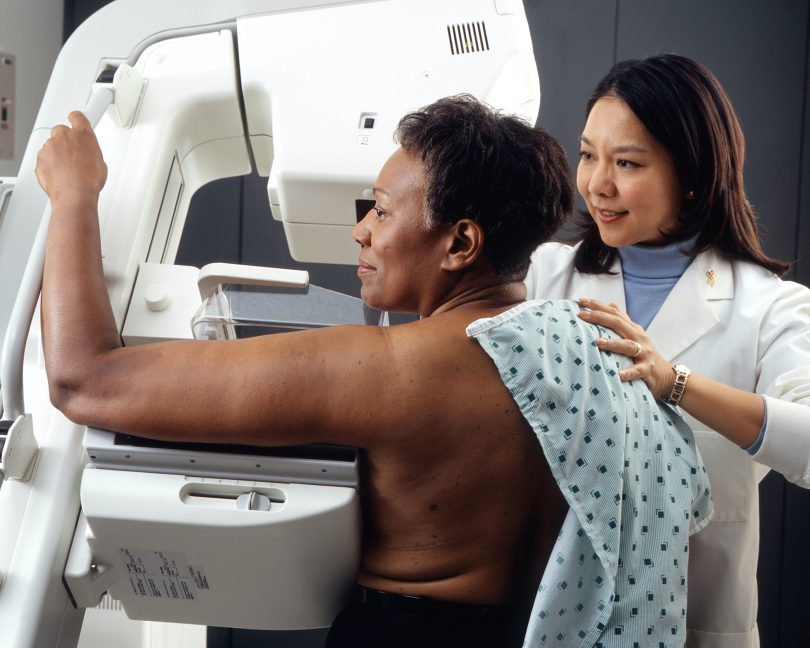One important area of cancer survivorship is the prevention of malnutrition. This involves resolving nutritional deficiencies, maintaining a healthy weight, preserving muscle mass, managing long-term side effects, and maximizing quality of life. For cancer survivors struggling with meeting nutritional needs, there are a few tips and tricks to help increase oral intake. Eating smaller more frequent meals, drinking fluids between meals instead of with meals, and even adding high calorie supplement drinks can all help increase the amount of calories and nutrients you are able to eat. Try snacking on high calorie snacks, such as yogurt with granola, vegetables dipped in hummus, or peanut butter and crackers to boost caloric intake.
It is important to note that malnutrition does not necessarily mean someone is underweight; you can be malnourished while overweight or obese. There is growing evidence that suggests being overweight or obese increases the risk of cancer recurrence and reduces the chances of survival. Not only will maintaining a healthy weight reduce the risk of cancer recurrence, but also the risk of many other chronic diseases such as heart failure. To achieve weight loss, you should eat a balance diet with a variety of foods. At each meal, aim for two-thirds of your plate to include fruits, vegetables, whole grains and beans. Aim for the remaining third of your plate to include lean meats such as turkey, chicken and fish. Choose whole grains instead of white, processed grains (such as white bread), and choose low fat dairy products as often as possible. Eating a wide variety of fruits and vegetables every day will ensure you are eating plenty of antioxidants. Antioxidants are compounds known to prevent cell damage and possibly reduce the risk of cancer. Overall, it is best to receive all your nutrients from whole foods instead of over-the-counter supplements. If you are concerned about having a vitamin deficiency, talk to your doctor to confirm any areas that might require additional supplementation.
Another way to maintain your health as a cancer survivor is to be aware of how much fat you eat. There is evidence that certain types of fats, such as saturated fats, may increase the risk of cancer. Studies have shown excessive saturated fat intake resulted in reduced survival rates from prostate cancer while intake of high monounsaturated fat intake lowered one’s risk risk of death from prostate cancer. Fat is still an important part of a healthy diet, but one should be aware of the types of fats they are eating and watch portion sizes. Saturated fats are fats that are solid at room temperature, such as butter, lard, and animal fat. Try to limit these types of fat. Some tips for incorporating healthier fats are to use olive oil instead of butter, swap out ground beef for ground turkey, increase your intake of fatty fish like salmon, and consume healthy fat sources such as avocado and olives. These types of fats are known to protect the heart too! On the flip side, try to limit your intake of trans fats, commonly found in processed baked goods as these are proven to have negative health impacts.
Limiting highly processed, fatty meats may also be beneficial to you throughout the survivorship period. Try meatless Mondays or aim to only have meat with one meal a day, opting for plant-based protein at other meals. Great sources of plant-based proteins include beans, legumes, nuts, and seeds. Lentils are packed with protein, with about 18 grams per cup, along with many other healthy nutrients. Reducing the amount of red or processed meat in your diet may lower your chances of cancer recurring while also reducing your saturated fat and sodium intake. Visit American Institute for Cancer Research Recipes for vegetarian recipes you can incorporate in your weekly meals.
Cancer survivors should also pay close attention to their food safety habits. Some cancer survivors have weakened immune systems for a long time post-treatment, increasing their chances of getting sick from food-borne illness. Ensuring proper washing of your hands, fruits and vegetables, and utensils can help prevent intake of germs. It is also important to store, cook, and cool foods to the correct temperatures. Do not let food sit in the “food temperature danger zone” between 40 degrees and 140 degrees, when bacteria grows quickly. Some cancer survivors may want to avoid eating out altogether. Talk to your doctor for recommendations on if you should avoid high traffic, public areas after your cancer treatment.
What you drink can be just as important as what you eat. Studies have found that alcohol intake increases the risk of many cancers. While the occasional drink is okay, for day-to-day practice, it is best to avoid alcohol all together. However, if you do decide to drink, it is important to practice moderation. Women should not have more than one drink a day, while men should not exceed two a day. One serving of alcohol varies with the type of beverage. For example, a serving is 5 ounces of wine, 12 ounces of beer, or 1.5 ounces of liquor.
Lastly, many people believe organic means healthier, or fresh foods are more nutritious than frozen or canned. Organic does not necessarily mean better for you and there is no need to starting buying organic produce if that is not your preference. Non-organic options are still a great choice. Frozen and canned fruits and vegetables can be just as good for you as the fresh ones and are still packed with vitamins, minerals, and fiber. Make sure you are buying canned fruit in 100% juice and vegetables with no added sodium. Fruit can be frozen to increase shelf life, convenience, and accessibility. While you are making lifestyle changes during your cancer survivorship, remember to keep in mind what fits your lifestyle and budget. Making small changes that you can continue to make throughout your life will help you be more successful than focusing on one detail like having organic on the label.
In conclusion, eating a diet with a wide variety of fruits and vegetables, choosing whole grains and low-fat dairy, reducing red meat intake, and avoiding or limiting alcohol are all ways to improve one’s nutrition, quality of life and survivorship. Start by tackling one of these areas and, gradually, these little changes may help prevent cancer recurrence and lead to a healthier version of you!


